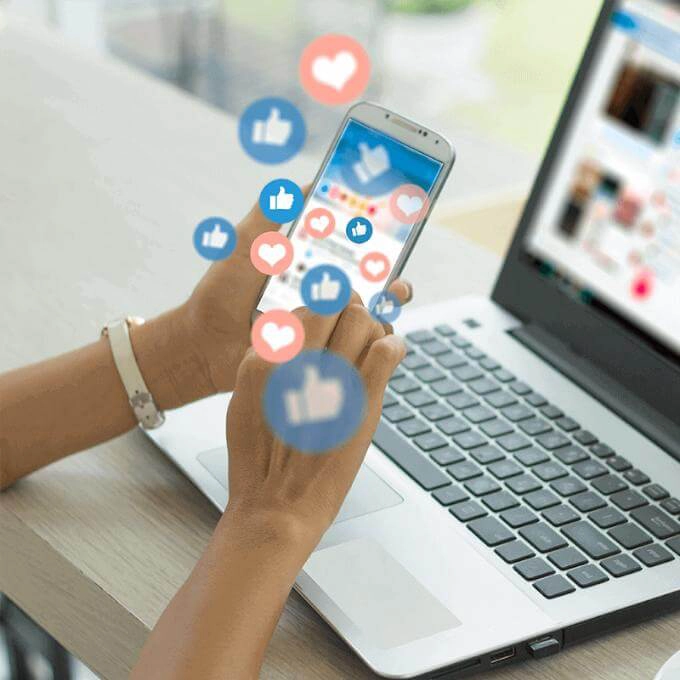Home/Wellness Zone/Sakra Blogs
20th May, 2021

It is not even two decades since social media came into our lives and it has become an inseparable part of our life which proves that man is a social being. The good quality phones at affordable prices and internet packages further enhance social media usage in India.
Social media connects us with friends, family and professional contacts. It helps us build a persona of ourselves and makes us more answerable for our actions. Social media helps people to attain their goals through a network of support. It also helps us understand and accept several new trends in the norms of society and find like-minded individuals.
But why do we like using social media? The answer is Dopamine.
The hormone created inside our body makes us feel good. It is the same hormone that makes us feel good when we intake chocolate, alcohol, smoke or gamble. No age restriction and ease of access has increased the usage of social media, specially among the millennials. But every good thing has some bad thing hidden, and the same is the case with social media.
Social media addiction is something each of us is familiar with. Addiction is a compulsive behaviour that causes negative effects. In this case, regularly checking the phone for updates and spending sleepless nights.
People create their virtual identity on social media and their happiness is linked to the appreciation given by their friends on their posts. Lack of the desired response leads to low self-esteem and in certain cases leads to depression.
In a time where there is increasing stress from family and educational institutes, teenagers today try and use social media as a coping mechanism. They make use of social media to create an ideal personality to try and become highly self-involved that often can’t relate to the realities of life. They are more prone to addiction and it can influence their functionality, which results in poor grades, unsuccessful relationships, etc.
The regular posts from friends often create a sense of insecurity among teenagers. The false sense of accomplishment becomes hardwired in their brain and as they age they fail to form meaningful relationships which leads to stress.
Not only teenagers even adults are often addicted to social media. It may be as innocent as clicking a photograph before every meal, regular check-in, posts or stalking people profiles.
A current study discloses that the people who tend to spend more time on social media are at more risk of depression. The social comparison and a belief that leads to false reality may be the reason for depression.
How to cope with social media addiction?
The first step to solve any problem is to first accept that you have a problem. It takes time and conscious effort to make or break the habit. Support of family and friends is equally important as it enhances our mental well-being and can help boost morale. Limit the usage of social media and create time for other fun activities. Instead of using social media, involve your kids in other activities and participate with them as it motivates them. These activities will have a good impact on the mental health of your child.
Though social media is an important part of everyone’s life, parents have to look into what their children are following over social media. Is it even good for their mental health? Talk to them, discuss with them and make them understand what is right and what is not. Build different ways for your children to release their stress, it can be a fun picnic at a home terrace or it can be a videogame competition with Dad.
Sakra World Hospital is widely recognized as one of the social media addiction treatment center in Bangalore, India. At Sakra World, our top psychiatrist in Bangalore also offers state-of-the-art evidence-based treatments and holistic healing to create a unique recovery experience for individuals struggling with alcohol, drug, cannabis, opioid and counselling and management of gaming/cell phone and internet addiction.
Sakra World Hospital is one of the best psychiatric hospitals in Bangalore, offering a healthy lifestyle and good coping skills to maintain psychological and physical wellbeing.
Received Coverage in The New Indian Express -
https://www.newindianexpress.com/cities/bengaluru/2018/apr/05/social-media-addiction-does-not-affect-teens-alone-1797044.html
Enquire Now
